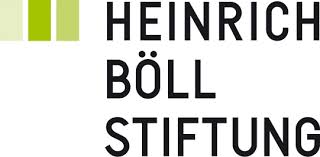حول الشبكة
في بضع كلمات
حول الشبكة
منذ إنشائها في عام 1997 ، بعد عامين من إعلان برشلونة ، أصبحت الأورو-متوسطية للحقوق واحدة من أبرز الفاعلين وأكثرهم نشاطًا في المنطقة الأورو-متوسطية في مجال حماية حقوق الإنسان وتعزيز الديمقراطية. خلال 25 عامًا الماضية ، نمت عضوية الشبكة وتم توحيد هيكلها.
اليوم ، تمثل الشبكة 70 منظمة نشطة في 30 دولة ، ولها مكاتب في كوبنهاغن (المقر الرئيسي) وبروكسل بتونس ووجود في المغرب.
لا تزال الشبكة متمسكة بمبادئ حقوق الإنسان العالمية وتؤمن بقيمة التعاون والحوار عبر الحدود وداخلها. على هذا النحو ، تتابع الشبكة مهمتها من خلال التواصل والتبادل بين أعضائها وشركائها ، وبناء القدرات كوسيلة لتحسين مهاراتهم ، ورصد وتوثيق انتهاكات وتجاوزات حقوق الإنسان ، وأعمال الدعوة و المناصرة.
سيمنحك القسم أدناه نظرة عامة كاملة على رؤيتنا ورسالتنا وأساليب عملنا.
Rasmus Alenius Boserup,
Executive Director
الأورومتوسطية للحقوق
شبكة تربط بين ضفتين
الأورو-متوسطية للحقوق هي إحدى أكبر شبكات منظمات حقوق الإنسان وأكثرها نشاطا في المنطقة الأورو-متوسطية.
تأسست في عام 1997 ، الأورو-متوسطية للحقوق تضم 68 منظمة من 30 دولة. يهدف عملها إلى تعزيز وحماية حقوق الإنسان والديمقراطية في جنوب وشرق البحر الأبيض المتوسط والتأثير على سياسات الجهات الأوروبية الرئيسية تجاه هذه المناطق.
الرؤية والرسالة
تكمن رؤية الأورو-متوسطية للحقوق في ترقية حقوق الإنسان والديمقراطية للجميع في المنطقة الأورومتوسطية.
وتتمثل رسالتها في تعزيز التعاون بين منظمات حقوق الإنسان من جنوب وشرق وشمال البحر الأبيض المتوسط ، وزيادة نفوذها في الداخل والخارج. و تتحقق هذه الرسالة من خلال تسهيل إنشاء استراتيجيات وخطط عمل مشتركة بين الأعضاء ، ومن خلال نقل تحليلاتهم ووجهات نظرهم المشتركة إلى صانعي القرار والجمهور.
في استراتيجيتها 2022-2027 ، إلى جانب عملها المنتظم في دول جنوب وشرق المتوسط ، تحدد الأورو-متوسطية للحقوق خمسة أهداف سياسية رئيسية :
- تعزيز حقوق المهاجرين و اللاجئين
- تعزيز المساواة بين الجنسين
- زيادة المساءلة والعدالة والمساحة للمجتمع المدني
- تعزيز الديمقراطية والحريات الأساسية
- تعزيز الحقوق الاقتصادية والاجتماعية والثقافية
بالتوازي مع ذلك ، تسعى الأورومتوسطية للحقوق جاهدة لتحقيق خمسة أهداف تنظيمية :
- تنشيط قاعدة أعضائها
- زيادة ظهورها وتأثيرها
- تقليل انبعاثات الكربون
- تحسين الاستدامة المالية والتنويع
- تحسين التعلم الداخلي
اقرأ “التحسين والتقدم” ، استراتيجية الأورو-متوسطية للحقوق 2022-2027 .
طرق العمل
تعمل الأورو-متوسطية للحقوق من خلال أعضائها، من أجلهم وبالتعاون معهم. إلى جانب ذلك ، تعمل الشبكة مع مئات من منظمات المجتمع المدني الأخرى ومع مؤسسات رسمية وطنية ودولية عاملة في مجال حقوق الإنسان. نقوم بذلك من خلال الجمع بين أساليب العمل الرئيسية الموضحة أدناه.
- التحليل والرصد : ترصد الأورو-متوسطية للحقوق تطور أوضاع حقوق الإنسان والديمقراطية في المنطقة الأورومتوسطية من خلال الدراسات والبعثات الميدانية وغيرها من أشكال جمع البيانات. تقوم الشبكة ايضا بإصدار تقارير وصحايف وثائق للاتجاهات والظواهر الرئيسية ذات الصلة بعملها. تستخدم تلك التقارير في تعزيز قدرات وفهم أعضائنا حول قضايا وعمليات محددة. كما تستخدم هذه المنشورات كأساس لموقفنا السياسي وفي تخطيط لبرنامجنا وأنشطة الدعوة والتواصل.
- التعاون والابداع المشترك : تسهل الأورو-متوسطية للحقوق التعاون والإبداع المشترك بين أعضائها وأصحاب المصلحة. تستخدم تلك التقارير في تعزيز قدرات وفهم أعضائنا حول قضايا وعمليات محددة. يتم تنفيذ معظم عملنا من خلال مجموعات العمل ، حيث يلتقي أعضاؤنا مع نظراءهم ومع أصحاب المصلحة الآخرين لتبادل الأفكار وتلقي التدريب ووضع خطط عمل مشتركة.
- المناصرة والتواصل : تسعى الأورو-متوسطية للحقوق للوصول و التأثير على صناع القرار وصانعي السياسات والجمهور الأوسع من خلال عملها في مجال المناصرة والتواصل. تقوم بذلك بالتعاون الوثيق مع أعضائنا وشركائنا. تستهدف أعمالنا المناصرة الهيئات الدولية مثل الاتحاد الأوروبي ، وكذلك الحكومات الإقليمية والوطنية بما في ذلك الدول الأعضاء في الاتحاد الأوروبي والحكومات في جنوب وشرق البحر الأبيض المتوسط.
- التعميم: تستخدم الأورو-متوسطية للحقوق التعميم لمعالجة القضايا والاهتمامات التي تؤثر على المنظمة بأكملها. نقوم بشكل منهجي بتعميم مراعاة المنظور الجنساني في جميع أنحاء عملنا وضمان أن حرية التعبير وحرية تكوين الجمعيات والحق في التجمع السلمي والحركة والوصول إلى صناع القرار وتمويل المجتمع المدني يتم تناولها في جميع برامجنا
سكرتارية
تكمن مسؤولية سكرتارية الأورومتوسطية للحقوق ، تحت اشراف المدير التنفيذي راسموس ألينيوس بوسيروب ، في تنفيذ برنامج الشبكة لمدة ثلاث سنوات واستراتيجيتها وخطط العمل التي اعتمدتها اللجنة التنفيذية
أعضاؤنا
تعتمد الأورومتوسطية للحقوق في انشطتها على الاعضاء ولها قاعدة عضوية واسعة ومتنوعة. تعمل الشبكة كمنصة لتعبئة وإشراك أعضائنا في التعاون في مجال السياسات ، وبناء القدرات ، والدعوة والتواصل للعمل بشكل مشترك على معالجة قضايا حقوق الإنسان في المنطقة الأورومتوسطية.
اللجنة التنفيذية
الجمعية العامة هي الهيئة العليا للأورو-متوسطية للحقوق؛ تجتمع كل ثلاث سنوات وتنتخب اللجنة التنفيذية.
تتكون اللجنة التنفيذية للفترة 2024-2027 من:
رئيس
منية بن جميع
نائب الرئيس
معتز الفجيري
المرجع الجندري
ماري كريستين فيرجيات
أمين صندوق
ثيودورا كريستو
أستاذة القانون بجامعة قرطاج ، ترأست الجمعية التونسية للنساء الديمقراطيات من 2016 إلى 2018. شاركت في المجموعة الأولى من الخبراء المكلفين بصياغة مشروع قانون القضاء على العنف ضد المرأة ، الذي اعتمده البرلمان التونسي عام 2017.
المؤسس المشارك ورئيس المنتدى المصري لحقوق الإنسان (EHRF). وهو أمين الصندوق السابق للأورو-متوسطية للحقوق والمدير التنفيذي السابق لمعهد القاهرة لدراسات حقوق الإنسان (CIHRS)، حيث لا يزال عضواً في مجلس الإدارة. كان سابقاً منسق الحماية لمنطقة الشرق الأوسط وشمال أفريقيا في منظمة فرونت لاين ديفندرز ونائب مدير منطقة الشرق الأوسط وشمال أفريقيا في المركز الدولي للعدالة الانتقالية (ICTJ). يشغل الفقيري حالياً منصب أستاذ مساعد في القانون ورئيس مؤسس لبرنامج حقوق الإنسان في معهد الدوحة للدراسات العليا.
تلتزم ماري كريستين فيرجيات بحقوق الإنسان منذ عام 1983 داخل الرابطة الفرنسية لحقوق الإنسان ، حيث تشغل حاليًا منصب نائب الرئيس المسؤول عن الحقوق الاقتصادية والاجتماعية وقضايا الهجرة. كانت عضوًا في البرلمان الأوروبي (GUE) من 2009 إلى 2019 وكانت عضوًا في لجنة الحريات المدنية والعدل والشؤون الداخلية واللجنة الفرعية لحقوق الإنسان ووفد الاتحاد الأوروبي / المغرب العربي.
عضو تنفيذي في لجنة نقابة المحامين لحقوق الإنسان في إنجلترا وويلز. ثيودورا كريستو محامٍ ومدرس أكاديمي في كلية لندن للاقتصاد وجامعة كوين ماري في لندن. مجالات خبرتها الأساسية هي حقوق الإنسان والقانون الدولي والمقارن.
روميسا دينيز كايا
سبيروس-فلاد أويكونومو
توني دالي
ديليانا جيتيفا
طالبة قانون في جامعتي مرمرة وليموج. تعمل كمحامية مسجلة في نقابة المحامين في باتمان باروسو منذ 9 سنوات. روميسا هي نائبة رئيس جمعية حقوق الإنسان في تركيا (IHD) ورئيسة فرع الجمعية في باتمان.
مسؤول المناصرة والاتصالات في المجلس اليوناني للاجئين (GCR)، يركز على البحث والمناصرة، ومؤخراً على الاتصالات. على مر السنين، قام بإعداد والمساهمة في عدد من التقارير والدراسات والمقالات، بما في ذلك بالتعاون مع منظمات المجتمع المدني الأخرى و/أو هيئات الأمم المتحدة، كما قام بصياغة والمساهمة في تقديم تقارير إلى هيئات مراقبة حقوق الإنسان التابعة للأمم المتحدة والاتحاد الأوروبي.
منسق المنظمة غير الحكومية 80:20 Educing and Acting for Better World ومقرها أيرلندا ، ومدير برنامج Developmenteducation.ie كونسورتيوم وعضو مجلس إدارة Fairtrade Ireland. يقوم توني بتدريس ودعم التربية الشعبية حول التنمية البشرية وحقوق الإنسان والمواطنة النشطة.
ديليانا جيتيفا محامية في "مركز المساعدة القانونية - الصوت في بلغاريا". تشارك بنشاط في تقديم المشورة والتقاضي وتمثيل طالبي اللجوء واللاجئين والمهاجرين أمام السلطات الإدارية والمحاكم في بلغاريا وأوروبا.
خديجة عيناني
حمدي شقورة
فرانكو أودا
مازن درويش
ناشطة في مجال حقوق الإنسان ونائب رئيس الجمعية المغربية لحقوق الإنسان (AMDH).
نائب مدير المركز الفلسطيني لحقوق الإنسان لشؤون البرامج. مجال خبرته الرئيسي هو التنمية الديمقراطية والحقوق المدنية والسياسية.
عضو المجلس الوطني لجمعية Ricreativa e Culturale Italiana (ARCI) ونائب رئيس ARCS (منظمة ARCI غير الحكومية). فرانكو عضو في مجالس إدارة المنتدى المدني الأوروبي التابع للاتحاد الدولي للمستوطنات ويتعاون مع منتدى Solidar الدولي للتعاون. يعمل في الغالب على حقوق الإنسان والسلام والديمقراطية التشاركية والتضامن.
محامٍ سوري ومدافع عن حقوق الإنسان يرأس المركز السوري للإعلام وحرية التعبير. لعب دوراً محورياً في توثيق انتهاكات حقوق الإنسان وتعزيز العدالة والمساءلة في سوريا. سُجن لعدة سنوات بسبب نشاطه في مجال حقوق الإنسان، وقد حصل على العديد من الجوائز الدولية تقديراً لجهوده الاستثنائية. تم اختياره ضمن قائمة مجلة تايم لأكثر 100 شخصية تأثيراً في العالم.
الجهات المانحة لدينا
ترتكز استراتيجية جمع التبرعات للأورو-متوسطية للحقوق على ثلاثة مبادئ عامة: ضمان استقلالية الشبكة، تقليل اعتمادنا على المانحين، وضمان استدامتنا المالية. تود الأورو-متوسطية للحقوق أن تتقدم بالشكر والعرفان للجهات المانحة التالية لدعمها المالي:

تدعم ACT / Church of Sweden منذ عشر سنوات الأورو-متوسطية للحقوق بتمويل أساسي لأنشطتها في مجال تعزيز حقوق الإنسان والدفاع عنها في الشرق الأوسط وشمال إفريقيا.
تمول شبكة المؤسسات الأوروبية (NEF) المجتمع المدني في عملها من أجل الإدماج الاجتماعي والديمقراطية والتنمية الدولية. تدعم NEF الأورومتوسطية للحقوق في إطار أنشطة برنامج الهجرة والمجلس الاقتصادي والاجتماعي.

الاتحاد الأوروبي
تعد المفوضية الأوروبية شريكًا استراتيجيًا طويل الأمد للأورو-متوسطية للحقوق وتدعم عملنا في مصر وتركيا والحوار الإقليمي المنظم وبناء قدرات المجتمع المدني في الجوار الجنوبي.

برنامج الشراكة الدنماركية العربية هو مشروع تعاون الدنمارك مع الشرق الأوسط وشمال إفريقيا وهو شريك استراتيجي طويل الأمد للأورومتوسطية للحقوق ، يركز على تعزيز الحكم الرشيد في المغرب وتونس ومصر والأردن.
مؤسسة فرنسا هي وكالة إدارية مستقلة تهدف إلى تعزيز نمو الأعمال الخيرية الخاصة والمؤسسات الخاصة في فرنسا. يدعم البرنامج الأورومتوسطي للهجرة في لبنان واستراتيجيتنا الإقليمية.

مؤسسة هاينريش بول هي مؤسسة سياسية ألمانية مستقلة قانونًا. وهي تدعم عمل الأورو-متوسطية للحقوق في المغرب مع التركيز بشكل خاص على الهجرة ، وكذلك في لبنان والأردن وتركيا.

تتمتع النرويج والأورو-متوسطية للحقوق بشراكة طويلة الأمد من خلال الدعم النرويجي لبرنامج شمال إفريقيا. يتم تنفيذ دعم النرويج للأورو-متوسطية للحقوق من خلال التدخلات الخاصة بكل بلد.

تدعم مؤسسات المجتمع المفتوح مالياً مجموعات المجتمع المدني في جميع أنحاء العالم ، بهدف معلن هو النهوض بالعدالة والتعليم والصحة العامة والإعلام المستقل. يقدّمون التمويل لمنظمة الأورو-متوسطية للحقوق لتنفيذ برنامج عملنا للفترة 2022-2024.

وقعت الوكالة السويدية للتعاون الدولي و الأورو-متوسطية للحقوق اتفاقية لمدة خمس سنوات (2023-2027)، لضمان بقاء منظمات حقوق الإنسان، والمدافعين عن حقوق الإنسان، والمجتمع المدني قوة سياسية في منطقة الأورومتوسط.

